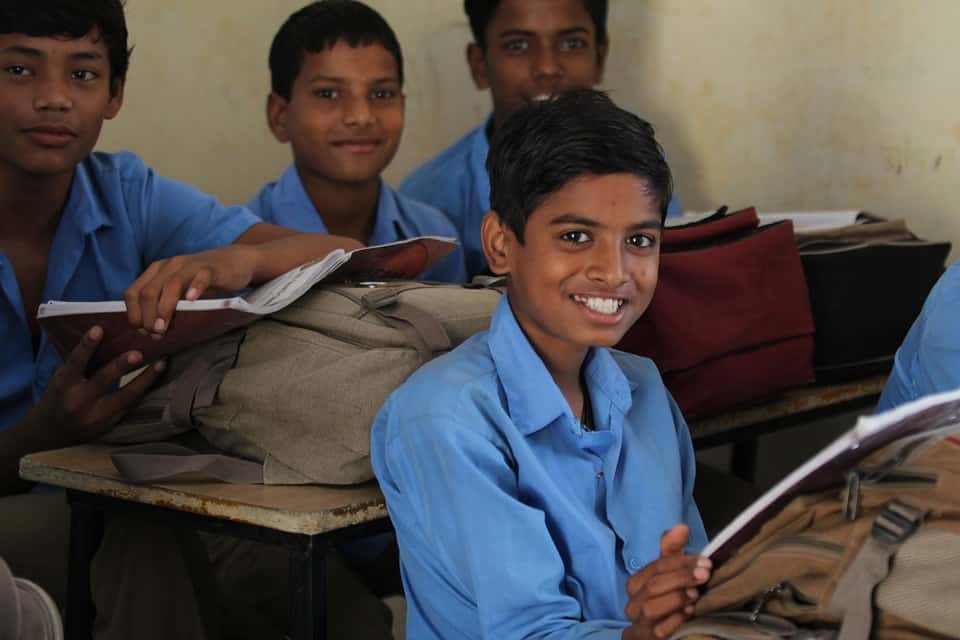The first quarter of this year has been very stressful for most of the parents, the board exams (10th and 12th), final exams, students studying all the time. Parents confiscating all gadgets be it mobile, PS4, tablets, laptops or even poor old simple TV.
Last three months the dinner table conversations, weekend get-to-gather, what’s app chats, Facebook posts, even Instagram and linked-in seem to be carrying frustrating outburst of parents. This makes me wonder why do we take our exams so seriously, why are we so scared of letting our children fail? Why do mothers break down and cry when the child has scored below 50%.
Last few days have been very disturbing. As I waited for the ninth grade results to be out the constant fear of my child losing motivation if he fails was too much to handle. I was worried as to how will I counsel him. What bothered me more was why was I having this fear in the first place.
My son “passed” and my tension was over, or so I thought. Friends, family, neighbors even my “sabjiwala” wanted to know the percentage he scored. I felt proud as a parent knowing how difficult last year has been health wise for my son and also being aware that he is not a great writer; he hates to write, he loves to communicate through three-dimensional models and drawings; this surely was an achievement for him. I proudly shared his grade (50% appx.) with everyone one and was shocked to see people reacting as if it was a joke; shocked expressions, bits of advice on why it is important now at least to work hard, reviews on how his life is spoiled, scolding and finally silence, no one is asking anymore.
When I could take this stress of “what will happen next” no more, I sat down and looked at his report card (why is it called that in first place?) He had improved in practically all subjects by minimum 85%, in some even 100%. I think a student like this deserves applaud from school and parents and everyone else; he is not the only one. I look around and find many more like him who are highly intelligent(some even geniuses), smart, knowledgeable but not at all great scorers, the misfits of the Indian education systems; the ones who will be forced to drop out by schools, forced to be backbenchers, forced to be not eligible for any of the entrances. These all excellent learners will be tagged bad performers and eventually lose seats in the top education institutions.
This brings my focus back to what I have been researching; understanding education. Why are we so wrapped up with these number games? In management summits, forums and academic meetings students are being referred to as numbers, “our target for next year 600 numbers”. Once students join the school or college then again are referred to as numbers, “each class must have 75 numbers and if it is less than 50 combine two even if exceeds the cut-off of 75”. Whoever is the highest scorer (number again!) in the class will be the best student. General assumption used for selection of any discipline is that great scorers (numbers?) get science (numbers!), average scorers by default get commerce and the rest (numbers again) arts or humanities.
The other day I came across this article http://indiatoday.intoday.in/story/sarva-shiksha-abhiyan-ssa-implementation/1/180091.html
In this article Mr. Govind states, “India’s unique contribution to the growth of the knowledge industry has significantly transformed the global perception of Indian education and raised expectations within the country as well as abroad. Yet paradoxically, India continues to be at the bottom of the pile as far as the human development index is concerned, ranked as low as 126. UNESCO’s Global Monitoring Report cautions that the country, along with its South-Asian neighbors and Sub-Saharan African countries, is at the grave risk of not meeting the global commitment to reach the goal of education for all by 2015.”
It is an interesting article but what caught my eye is that India is ranked as one of the lowest by UNESCO as far as Human development index is concerned.
For last three years that I have been researching on the way we teach in our schools, I am not only surprised but aghast to see that there is no contribution from the learner in any aspect of curriculum development, delivery, and assessment. The one whose life education is going to define is the one completely clueless about how?
The students are so caught up in scoring the highest grades possible to ensure a “better future” that every level of life experience seems to freeze for them. I wonder at times how does the percentage of top scorer in school or competitive exams help decide that he is going to be “that achiever alumni” for the premium engineering, medical or business college. How does it help top design or art schools to take a call on best “future artist and designers” based on entrance scores alone? We all have time and again witnessed success stories of Indian education system “misfits”.
There are schools and various education institute who are really trying hard to bring in change but the number of such change makers is like a drop in the ocean. There are changes required at grass root level, at mid-level, and at the top policy level.












